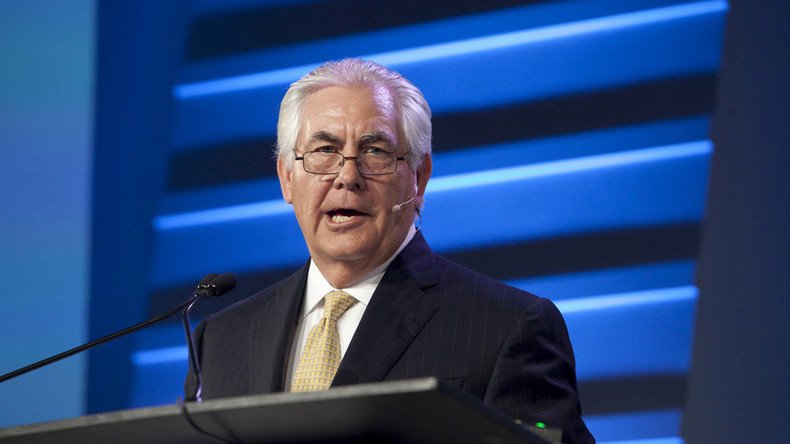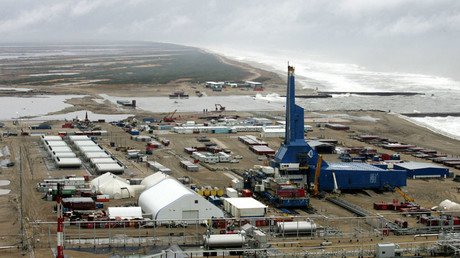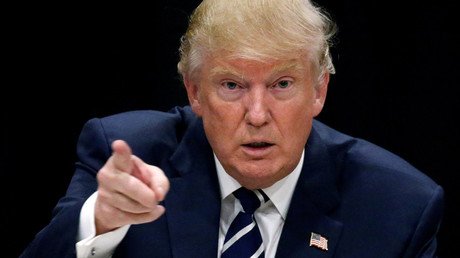Could Tillerson open up the Russian Arctic for Exxon again?

If the ExxonMobil CEO is confirmed as the new U.S. Secretary of State, the evolving relationship between Russia and the United States will take an interesting turn. Rex Tillerson could be in a position to hand his former company a major victory if he helps orchestrate a removal of U.S. sanctions on Russia.
The close ties between Exxon’s Tillerson and the Kremlin – and Russian President Vladimir Putin specifically – have raised concerns in a few corners of Washington, which could complicate Tillerson’s nomination. While some Democrats are outraged that the CEO of one of the largest oil companies will be put in charge of U.S. international climate policy, many more have suddenly taken up an anti-Russian stance to oppose Tillerson’s nomination, likely in order to land a blow against Trump. Hawkishness against Russia is typically the purview of the Republican Party, and indeed a handful of hawkish Republicans are uncomfortable with the Trump administration’s, as well as Tillerson’s, willingness to countenance a better relationship with Russia. But they will probably get over it.
Nevertheless, putting Tillerson at Secretary of State does present some questions over conflict of interest. After all, Tillerson could be instrumental in removing sanctions on Russia, which would be a highly favorable outcome for ExxonMobil, where Tillerson has worked for his entire 41-year career.
It may also benefit Tillerson personally. Tillerson may still hold onto huge stock holdings in Exxon, which due to a variety of complicated tax rules, may be difficult to unload. Fortune gives a good rundown of the situation with Tillerson’s stock, which raises the possibility that Tillerson doesn’t sell off his positions in the company before becoming Sec. of State. He may have to wait years before he can get his hands on what is valued today at well over $200 million in stock. But if he does that, he is opening up a massive conflict of interest. The State Department, which he will run, will have enormous influence over U.S. foreign policy that could affect the oil industry, and thus, his personal fortune. He will be in charge of negotiations over war and peace, which often affects the fortunes of oil companies in the Middle East. He will also be able to arm twist foreign leaders over access to oil and gas reserves.
Read more on Oilprice.com: The Oil Mystery Behind Saudi Arabia’s Production Cut
And crucially, he will be one of the most important people in regards to sanctions policy on Russia. For Exxon, there is arguably not a more important part of the world that the State Department could influence than Russia. Back in 2014, Exxon worked in partnership with Russia’s state-owned oil company Rosneft to explore for oil in the Russian Arctic. In September of that year, Rosneft and Exxon announced a major discovery. Far offshore, in the Kara Sea, the two companies hit pay dirt.
They announced that they had “successfully completed the drilling of the northernmost well in the world – the Universitetskaya-1 well in the Arctic.” The $700 million well was thought to hold at least 750 million barrels of high-quality light oil, a huge victory for the companies involved. Indeed, Rosneft CEO Igor Sechin said the field would be called Pobeda – the Russian word for “victory.”
The only problem was that shortly before the companies made the discovery, the U.S. had slapped sanctions on Russia for its invasion of Crimea. The sanctions prohibited U.S. companies from working with Rosneft, so Exxon was forced to pack up and leave despite leaving a lot of money on the table. Rosneft has had to put Arctic drilling on ice, so to speak, since Exxon left, lacking the capital and drilling capabilities to go it alone. In fact, that was part of the intention behind U.S. sanction policy, cutting off Russian sources of revenue by isolating it from international oil companies with which it could partner. Without the help of the oil majors to open up new frontiers, Russia’s oil output faces long-term decline as its aging fields deplete.
But Exxon’s work in the Kara Sea could resume if the U.S. government, with the help of Rex Tillerson, lifts the sanctions on Russia. That would help Exxon put a large volume of new reserves on its books, and open up the possibility for increasing production, which has been a challenge over the past few years. For Russia, growing production is central to the health of the government’s long-term budget. As Vox’s Brad Plumer succinctly put it, “In a lot of ways, Putin and Exxon need each other. And Tillerson is now in the middle.”
That puts the spotlight on Tillerson’s nomination. His enormous conflicts of interest could come up in his nomination hearings in the U.S. Congress, although Republicans seem to be more concerned with his friendship with Russia than his financial ties to his former company. While the Republicans would seemingly have the votes needed on the Senate floor, especially if they can peel off a few Democrats such as West Virginia Senator Joe Manchin and North Dakota Senator Heidi Heitkamp, a few key Republicans are skeptical. Senators Marco Rubio (R-FL), John McCain (R-AZ) and Lindsey Graham (R-SC) have expressed some opposition, but after a blitz by powerful figures in the Republican party as well as a key donor that assisted in Sen. Rubio’s reelection – as the Washington Post Reports – to convince undecided Republican Senators on the wisdom of Tillerson’s nomination, the roadblocks could be starting to clear for the Exxon CEO.
This article was originally published on Oilprice.com














